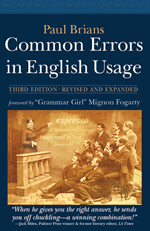absorbtion
briansAlthough it’s “absorbed” and “absorbing” the correct spelling of the noun is “absorption.”
But note that scientists distinguish between “absorption” as the process of swallowing up or sucking in something and “adsorption” as the process by which something adheres to the surface of something else without being assimilated into it. Even technical writers often confuse these two,.
BUY THE BOOK!
